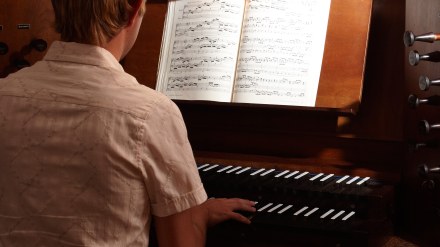The US Court of Appeals for the Seventh Circuit, headquartered in Chicago, decided an important case last week regarding the ministerial exception to employment discrimination laws. The answers to the questions before the court in this case are important ones. The ministerial exception to employment discrimination claims gives churches the right to hire and fire and make employment decisions for any reason without being subject to Title VII (and other employment discrimination laws).
The case
The case involved a lawsuit brought by Stanislaw Sterlinski, who claimed he was fired from his position as a church organist because of his Polish heritage. Sterlinski once was the church’s director of music, but was demoted to the job of organist and later fired.
The Seventh Circuit recognized Sterlinski’s role as music director meant he was a “minister” for purposes of the ministerial exception to Title VII and therefore could have been fired for any reason by the church. But the questions the court wrestled with focused on whether Sterlinski could be considered a “minister” after he was demoted to the position of organist and, more importantly, who ultimately decides whether one’s role is ministerial—the employing church or a court.
Sterlinski argued that his job was simply to play notes assigned to him and therefore his role was not religious. The church argued that music was an integral part of its services and so the organist position was religious.
(Editor’s note: Members have access to Richard Hammar’s analysis after the lower federal court that heard the case issued its original decision.)
The court’s analysis
The ministerial exception flows out of the recognition that a “minister” is the lifeblood of a congregation and churches should not be forced to accept or retain a minister they do not want. The word “minister” means more than just a priest or preacher. In 2012 the United States Supreme Court unanimously held that a Lutheran schoolteacher was a minister for purposes of the ministerial exception. The ministerial exception is a recognition of the old adage that “personnel is policy.” Thus, courts have recognized for years that forcing churches to accept or retain unwanted ministers can profoundly affect the direction and course of the church.
In the present case, the Seventh Circuit highlighted a disagreement over who gets to decide what is religious—federal judges or the church? Courts have reached conflicting answers to that question. In particular, the Ninth Circuit Court of Appeals held in an earlier case that it can decide for itself whether a given employee’s job was religious as opposed to secular.
The Seventh Circuit decided to take a different approach. It noted:
If the Roman Catholic Church believes that organ music is vital to its religious services, and that to advance its faith it needs the ability to select organists, who are we judges to disagree? Only by subjecting religious doctrine to discovery and, if necessary, jury trial, could the judiciary reject a church’s characterization of its own theology and internal organization.
The Seventh Circuit held that subjecting churches to this kind of decision-making by federal judges would result in “judicial entanglement in, and second-guessing of, religious matters.” Instead, a church must be given the right to assert that a particular job is religious and the job of a federal judge is simply to determine whether that characterization is honest, not whether it is correct.
The Seventh Circuit’s decision is binding for the states of Illinois, Indiana, and Wisconsin. It is considered persuasive for the remaining federal circuit courts nationwide.
Looking ahead
The issue of which employees fall within the ministerial exception is one that is heavily litigated. Because many cases are already being litigated on this issue, it is likely the Supreme Court will take up the issue again in the future. When that will be is difficult to determine. The first ministerial exception case was decided by a court in 1972, but the Supreme Court did not take up the issue until 2012. Churches and religious organizations may be in for a long, wait with more favorable cases in some circuits and less favorable in others.
What is reasonable to expect is that there will be more cases about this issue in the future. It is important for churches and religious organizations to address this matter with competent legal counsel before an employee files a claim. Being prepared is much better than trying to scramble after a lawsuit is filed.
Erik Stanley is an attorney at Provident Law, specializing in religious liberties, churches and nonprofits, commercial litigation, and business law, and the former senior counsel for Alliance Defending Freedom.





